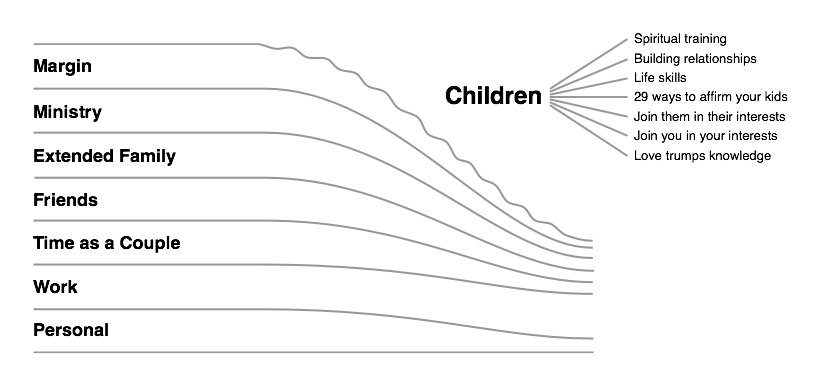Finally, we invest in our children when we teach and model the concept that love trumps knowledge. Paul writes in I Corinthians 8:1, “Knowledge puffs up, love builds up.” Or in another translation, “Knowledge makes arrogant, but love edifies.” Paul could not be more direct. When the apostle expounds on the topic again in I Corinthians chapter 13, he explains that knowledge without love is useless. According to Scripture, knowledge without love is of no value whatsoever!
This prominent message of the New Testament has tremendous implications in your family and in your community of believers. In our legitimate quest to get things right, we can forget the love. In our effort to get our kids to fly right, we can damage the relationship with a lack of love. In our search for Bible knowledge, we can become hearers and studiers of love instead of doers of the Word. The knowledge we advertise in our gossip often harms the ones we claim to love. Our desire to be in the knowledgeable inner circle can leave us stepping over our less-connected brothers and sisters. And in our effort to be biblically correct on current trends, such as homosexuality, we can lose our love for the individual caught in its grip.
I have seen our children take this message to heart. I have seen the idea that love trumps knowledge played out in their lives over and over. It would be self-serving to share their stories, but it warms the hearts of their parents. Did we value knowledge in our household? Very much so. Bible knowledge is important. Academic progress was encouraged and rewarded. But it must always be subservient to love.
Soon after Rhonda and I were engaged to be married, I flew up to Alaska for a job assignment while Rhonda finished her last semester in school. She gave me a book as I boarded the plane and wrote this verse on the flyleaf, “Let all that you do be done in love” (I Cor 16:14). Little did we know then, over 35 years ago, that this verse would become a theme for our family. Rhonda has always been a doer of the word when it comes to love, but I guess on that day she was a prophet as well.


